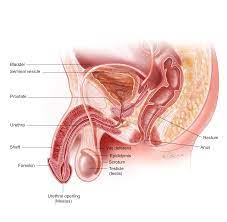
What You Need to Know About Prostate Cancer
One in seven men in the United States will receive a prostate cancer diagnosis during his lifetime. It’s actually the second-most common type of cancer, and one of the leading causes of death in men.
However, as with other types of cancer, the earlier you receive your diagnosis, the better your prognosis. Learn the symptoms, whether you’re at risk, how prostate cancer is treated and what you can do to help prevent it.
What Are the Symptoms of Prostate Cancer?
Many men who have prostate cancer don’t have any symptoms, and many of the symptoms are also indicative of other diseases. For this reason, many men don’t even realize they have the disease until they’ve had it for a while. If you suffer from any of the following symptoms, it’s important to see your doctor as soon as possible for testing:
Problems urinating, including a slower stream, trouble getting started, trouble emptying your bladder and more frequent trips to the bathroom to urinate Blood in your urine or semenPain and discomfort in the pelvis, back or rectum Swelling of the legsPainful ejaculation and erectile dysfunction Anemia that usually causes tiredness and dizziness Shortness of breath
Who Is at Risk for Prostate Cancer?
All men are at risk for prostate cancer, though some are at a greater risk than others. The older you are, the more likely you are to develop the disease, with your chances increasing after age 50 and especially after age 65. Race can also factor into it. African-American men are more likely to develop prostate cancer. As with most diseases, if you have a history of it in your family, it’s important to keep a watch out for symptoms and have regular screenings, as you are at a greater risk for it. Being obese or overweight can also increase your chances, though men who are at a healthy weight can develop it too.
How Does a Doctor Test for Prostate Cancer?
If you have a regular physical each year, your doctor may make prostate cancer screenings a regular part of your visit, especially if you’re over 50. Most doctors perform a digital rectal exam, which can detect many other prostate abnormalities. This involves the physician inserting a gloved, lubricated finger into your anus. If he or she suspects you may have prostate cancer, you’ll receive a blood test called a prostate-specific antigen (PSA) screening to check the levels of the PSA enzyme. Higher levels typically mean something is not right with the prostate, though this may not always indicate cancer. If your levels are high or your digital rectal exam was suspect, the doctor may order an ultrasound to check for tumors. If a tumor or other abnormality is present, you’ll likely receive a biopsy, which involves removing cells from the prostate so a team of doctors can test them for cancerous traits under a microscope.
How Is Prostate Cancer Treated?
If your doctor determines you have cancer, he or she will determine your Gleason score. The Gleason score ranges from one to 10 and tells the doctor how advanced the cancer is, whether it has spread and how aggressive treatment should be. Most men find they have plenty of options when it comes to determining which type of treatment they want to undergo. Some of the options include surgical removal of the prostate gland, radiation, chemotherapy, hormone therapy, cryosurgery, which freezes and kills cancer cells, and ultrasound heat therapy. Common treatment side effects may include erectile dysfunction and incontinence.
Can You Prevent Prostate Cancer?
Right now, there is no surefire way to prevent prostate cancer, though there are some things you can do that may help. Of course, as with any health issue, a diet filled with fruits, vegetables and lean proteins can help keep you in good shape, as can regular exercise, including both cardio and strength training. Avoiding stress and taking time to relax through practices like yoga and meditation may help. Adding more flaxseed, green tea, tomatoes and pomegranate juice may also reduce your cancer risk. You may also want to start taking a vitamin D supplement. Most adults don’t get enough, especially as they age. It’s believed that vitamin D can actually help slow cancer growth.





